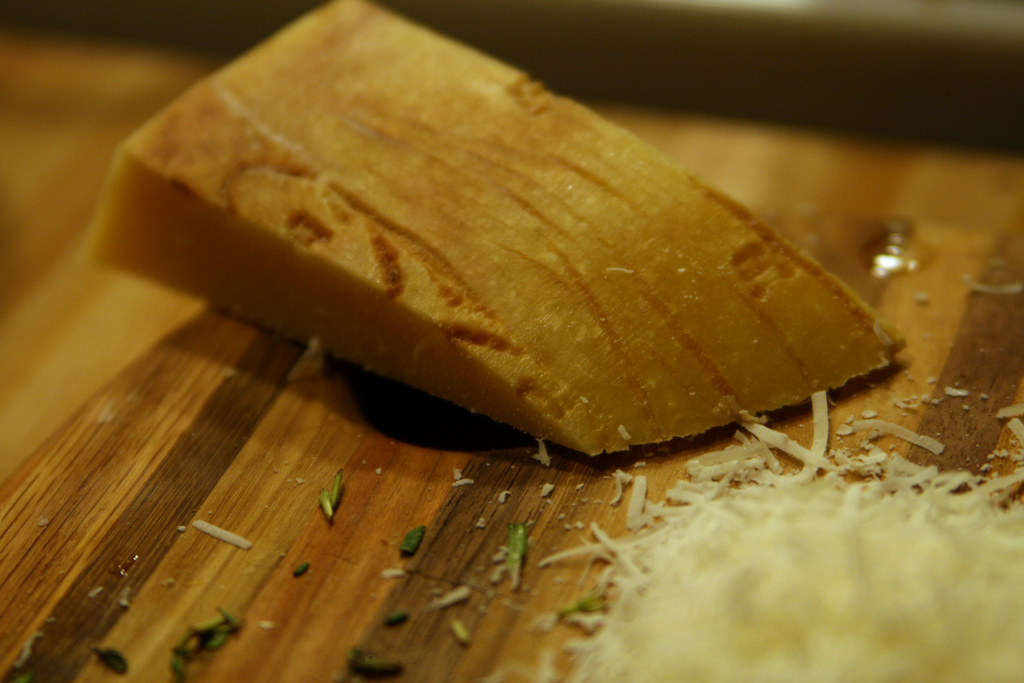Grated Cheese Cops Want To Protect Us All From Parmesan Full Of Cheddar And Wood
The wheels of cheese justice turn very slowly. This month, though, the president of a Pennsylvania company that made hard grated cheeses will plead guilty and face her punishment, which could be as great as a year in prison and a $100,000 fine.
Her company is accused of selling imitation grated cheese as real, and of passing off cheaper cheeses like cheddar and Swiss as the more expensive Parmesan and Romano.
“Specifically, your product labels declare that the products are parmesan cheese or romano cheese, but they are in fact a mixture of trimmings of various cheeses and other ingredients,” the Food and Drug Administration told the company in a 2013 warning letter. “In addition, your parmesan cheese products do not contain any parmesan cheese.”
Cellulose powder is a common additive to shredded and grated cheeses when they’re packaged for distribution onto your lasagna, since it prevents clumping. Our colleagues down the hall at Consumer Reports noted its presence in Kraft’s shredded cheddar “natural cheese.” The amount found in grated cheeses varies: about 2-4% is a decent amount to prevent cheese from caking, but tests by Bloomberg Business turned up grated cheeses that were as much as 8.8% cellulose.
One crusading cheesemaker says that he has found cans of the grated stuff on the market that only contain about 40% cheese at all. The FDA claims that the parmesan without parmesan from Castle Foods was sold at Target stores and supermarkets supplied by Associated Grocers, but Target denies that the troubled former cheese-maker was ever a vendor of theirs.
Slippery Rock cheese company allegedly sold imitation cheese as real [Pittsburgh Post-Gazette]
Want more consumer news? Visit our parent organization, Consumer Reports, for the latest on scams, recalls, and other consumer issues.


